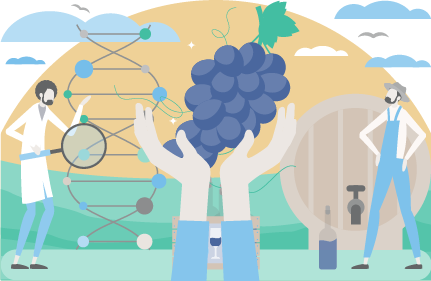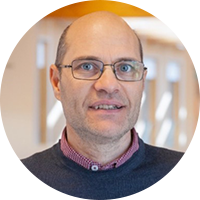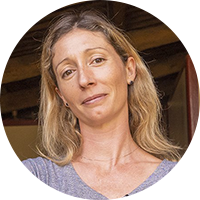Virtual Workshop: Harnessing Genome Editing Technologies for Viticulture
-

May 29, 2023
2:00 pm - 6:00 pmVirtual (Time in CEST/GMT+2)
Paris, France
Video Recording
Overview
Supported by a grant from the United States Department of Agriculture, the Agriculture & Food Systems Institute organized a virtual workshop aimed at stakeholders in the European Union (EU). The online event focused on the use of genome editing to improve practices for grape cultivation toward specific end uses. The goal was to demonstrate to traditional agriculturalists the potential of using genome editing tools in breeding programs and the possible application of this technology for the adaptation of grape varieties to a rapidly changing climate. The target audience included a broad base of EU stakeholders, such as scientists, risk assessors, regulatory folks, farmers, and private sector professionals from the wine industry.

Agenda
2:00 pm
Technical Introduction
Dr. Bhavneet Bajaj
Manager – Scientific Programs, Agriculture & Food Systems Institute, USA
2:05 pm
Welcome Remarks
Dr. Luigi Cattivelli
Director, Research Center for Genomics & Bioinformatics, Council for Agricultural Research & Economics (CREA), Italy
2:15 pm
Genome Editing to Improve Grapevine Disease Resistance
Dr. Claudio Moser
Department Head, Plant Biology and Physiology Unit, Edmund Mach Foundation of
San Michele all’Adige, Italy
2:35 pm
Marker-Free Genome Editing in Grapevine
Dr. Laurent Deluc
Associate Professor, Department of Horticulture, Oregon State University, USA
2:55 pm
Improved Varieties for Italy and the Potential of Genome Editing
Dr. Riccardo Velasco
Research Director, Council for Agricultural Research & Economics (CREA), Italy
3:15 pm
Moderated Group Discussion and Q&A about the Potential Application of Genome Editing for Climate Resilient Wine Grapes
Dr. Bhavneet Bajaj
Manager – Scientific Programs, Agriculture & Food Systems Institute, USA
3:50 pm
Break
4:05 pm
Consumers’ Acceptance of Gene-Edited Table Grapes
Dr. R. Karina Gallardo
Professor and Extension Specialist, School of Economic Sciences, Puyallup Research and Extension Center, Washington State University, USA
4:35 pm
New Genomic Techniques - The European Young Farmers’ View
Ms. Diana Lenzi
President, European Council of Young Farmers (CEJA)
5:05 pm
Moderated Group Discussion and Q&A about the Socio-Economic Aspects of Genome Edited Wine Grapes
Dr. Bhavneet Bajaj
Manager – Scientific Programs, Agriculture & Food Systems Institute, USA
5:40 pm
Summary and Closing Remarks
Dr. Daniel A. Kovich
Science Advisor, USDA Foreign Agricultural Service, USA
Speakers
Dr. Luigi Cattivelli
Director, Research Center for Genomics and Bioinformatics, Council for Agricultural Research and Economics (CREA), Italy
 Dr. Luigi Cattivelli is the Director of the CREA Research Center for Genomics and Bioinformatics in Fiorenzuola d’Arda, Italy, where he coordinates a group of about 40 researchers/post-docs working in plant genomics, plant physiology, and bioinformatics. He was a fellow at the Max Planck Institute of Cologne in Germany from 1987 to 1989, and since 1991, he has held a permanent position at the Experimental Institute for Cereal Research in Fiorenzuola d’Arda, Italy (the institute incorporated into the Council for Agricultural Research and Economics in 2004). Between 1997 and 2003, he was a Professor of Plant Genetics at the University of Verona, Faculty of Biotechnology. In 2005, he became the Director of the CREA Cereal Research Centre in Foggia, leading a group of about 25 researchers and post-docs, with a primary interest in the breeding, genetics, metabolomics, and processing technology of durum wheat. In 2010, he took on his current role as Director of the CREA Research Centre for Genomics and Bioinformatics.
Dr. Luigi Cattivelli is the Director of the CREA Research Center for Genomics and Bioinformatics in Fiorenzuola d’Arda, Italy, where he coordinates a group of about 40 researchers/post-docs working in plant genomics, plant physiology, and bioinformatics. He was a fellow at the Max Planck Institute of Cologne in Germany from 1987 to 1989, and since 1991, he has held a permanent position at the Experimental Institute for Cereal Research in Fiorenzuola d’Arda, Italy (the institute incorporated into the Council for Agricultural Research and Economics in 2004). Between 1997 and 2003, he was a Professor of Plant Genetics at the University of Verona, Faculty of Biotechnology. In 2005, he became the Director of the CREA Cereal Research Centre in Foggia, leading a group of about 25 researchers and post-docs, with a primary interest in the breeding, genetics, metabolomics, and processing technology of durum wheat. In 2010, he took on his current role as Director of the CREA Research Centre for Genomics and Bioinformatics.
Dr. Cattivelli’s research interests include the genetics and molecular biology of cereals (barley, wheat, and rice), from plant breeding to gene cloning, QTL analysis, and genome sequencing. Genetics, genomics, gene functional analysis, and bioinformatics are used to identify and investigate key genes involved in the expression of agronomic traits. He coordinated AGROGEN, an 11 million euro competitive project dedicated to durum wheat genomics funded by the Italian Ministry of Science from 2007-2010. He coordinates Italy’s national BIOTECH project dedicated to genome editing (Biotecnologie sostenibili in Agricoltura, 2018-2022).
He coordinated the international initiative to sequence the durum wheat genome (Maccaferri et al., Nature Genetics, 2019) and participated in the international consortia for sequencing bread wheat genomes (IWGSC, Science, 2018) and wild emmer wheat (Avni et al., Science, 2017). He is the Italian representative in the research committee of the Wheat Initiative, an international organization for the coordination of wheat research endorsed by the G20 Agricultural Ministers, where he serves as co-chair of the Expert Working Group on Durum Wheat Genomics and Breeding. He is a member of the editorial boards of Plant Science (2008-2021) and Journal of Cereal Science and Associate Editor of Frontiers in Plant Science and the International Journal of Molecular Science.
Scopus registers more than 200 publications and >13.000 citations for Dr. Cattivelli, with an H-index of 54 (Google Scholar: >19.000 citations, H-index 65), Research-gate: https://www.researchgate.net/profile/Luigi_Cattivelli.
Dr. Claudio Moser
Department Head, Plant Biology and Physiology Unit, Edmund Mach Foundation of San Michele all'Adige, Italy
 Dr. Claudio Moser received his Ph.D. in 1998 from the University of Heidelberg (Germany) for research activity in molecular and structural biology at the European Molecular Biology Laboratory (EMBL). Prior, he completed an M.S. in Biology from the University of Pavia in Italy. After a post-doctoral fellowship at the pharmaceutical company Glaxo-SmithKline in Verona, he joined the Research Centre of the Fondazione Edmund Mach (FEM) in San Michele all’Adige, Italy, in 2001. From 2017 to 2021, he served as Head of the Department of Genomics and Biology of Fruit Plants of FEM, and he currently coordinates the Plant Biology and Physiology Unit. He also teaches agricultural chemistry and biochemistry at the University of Trento as a contract professor (viticulture and oenology courses).
Dr. Claudio Moser received his Ph.D. in 1998 from the University of Heidelberg (Germany) for research activity in molecular and structural biology at the European Molecular Biology Laboratory (EMBL). Prior, he completed an M.S. in Biology from the University of Pavia in Italy. After a post-doctoral fellowship at the pharmaceutical company Glaxo-SmithKline in Verona, he joined the Research Centre of the Fondazione Edmund Mach (FEM) in San Michele all’Adige, Italy, in 2001. From 2017 to 2021, he served as Head of the Department of Genomics and Biology of Fruit Plants of FEM, and he currently coordinates the Plant Biology and Physiology Unit. He also teaches agricultural chemistry and biochemistry at the University of Trento as a contract professor (viticulture and oenology courses).
An expert in functional genomics, molecular biology, and biochemistry, he has been studying the molecular mechanisms underlying fruit quality and defense response to the main pathogens in grapevine for twenty years. More recently, his group established a gene editing platform for grapevine, which uses protoplasts transfected with the CRISPR-Cas complex in the form of ribonucleoprotein. This activity aims to develop vines resistant to major fungal diseases, such as downy and powdery mildew.
He is the author of more than 60 peer-reviewed publications in international scientific journals (ORCID: 0000-0002-9141-7850), has presented his scientific works at numerous international conferences, has been Associate Editor for the journal BMC Genomics, and is a member of the Italian Society of Agricultural Genetics (SIGA).
Dr. Laurent Deluc
Associate Professor, Department of Horticulture, Oregon State University, USA
 Dr. Laurent Deluc is an Associate Professor in the Department of Horticulture at Oregon State University. He is also a Core Faculty member of the Oregon Wine Research Institute. His research program focuses on grapevine genomics and biotechnology. He completed his Ph.D. in France in 2004, working on validating two major regulators of anthocyanin synthesis in grape berries. He moved to the U.S. in 2005 as a Postdoctoral Fellow in the Department of Molecular and Cellular Biology at the University of Nevada, Reno. His research uses genomics tools to understand the effects of water deficit irrigation and cold treatment on grapevines. In 2009, he was offered an Assistant Professor position aimed at developing a grapevine genomics program at Oregon State University. Since 2016, he has developed new research themes using the first generation of genetic engineering and more recent gene editing tools using a plant model system, the microvine. This model presents many features that make it suitable for reverse genetic and physiological studies in grapevine.
Dr. Laurent Deluc is an Associate Professor in the Department of Horticulture at Oregon State University. He is also a Core Faculty member of the Oregon Wine Research Institute. His research program focuses on grapevine genomics and biotechnology. He completed his Ph.D. in France in 2004, working on validating two major regulators of anthocyanin synthesis in grape berries. He moved to the U.S. in 2005 as a Postdoctoral Fellow in the Department of Molecular and Cellular Biology at the University of Nevada, Reno. His research uses genomics tools to understand the effects of water deficit irrigation and cold treatment on grapevines. In 2009, he was offered an Assistant Professor position aimed at developing a grapevine genomics program at Oregon State University. Since 2016, he has developed new research themes using the first generation of genetic engineering and more recent gene editing tools using a plant model system, the microvine. This model presents many features that make it suitable for reverse genetic and physiological studies in grapevine.
Dr. R. Karina Gallardo
Professor and Extension Specialist, School of Economic Sciences, Puyallup Research and Extension Center, Washington State University, USA
 Dr. R. Karina Gallardo is a Professor and Extension Specialist in the School of Economic Sciences. She is stationed at the Puyallup Research and Extension Center. Her primary research and outreach program goal is to enhance value-added agribusiness opportunities for specialty crops in Washington State. Her research assesses agri-food supply chain acceptance of new production and processing food technologies. On the production side, her research seeks to advance the understanding of profitability and other factors affecting growers’ adoption of new technologies, such as new cultivars, improved pest management systems, and labor-enhancing mechanisms. On the demand side, Dr. Gallardo’s program seeks to understand the different factors impacting consumers’ acceptance of new agri-food technologies.
Dr. R. Karina Gallardo is a Professor and Extension Specialist in the School of Economic Sciences. She is stationed at the Puyallup Research and Extension Center. Her primary research and outreach program goal is to enhance value-added agribusiness opportunities for specialty crops in Washington State. Her research assesses agri-food supply chain acceptance of new production and processing food technologies. On the production side, her research seeks to advance the understanding of profitability and other factors affecting growers’ adoption of new technologies, such as new cultivars, improved pest management systems, and labor-enhancing mechanisms. On the demand side, Dr. Gallardo’s program seeks to understand the different factors impacting consumers’ acceptance of new agri-food technologies.
Ms. Diana Lenzi
President, European Council of Young Farmers (CEJA)
 Diana Lenzi is the President of the European Council of Young Farmers (CEJA). She is a young farmer from Tuscany, where she has been managing her family’s winery since 2008. She cultivates and processes grapes to make Chianti Classico wines, olives for EVO, and ancient grains for flour and pasta. Diana has been involved and active in the Italian farmer organization Confagricoltura (ANGA) since 2012, when she founded the section for Siena, of which she was President for six years. Since then, she has been President at the regional level and Vice-President at the national level from 2015 to 2019. Following that, she became the ANGA delegate for CEJA, targeting her experience at the EU level. She has been serving as CEJA’s President since June 28, 2021, where she is leading the internal discussion on new genomic techniques as one of CEJA’s Road to Sustainability 2-year program items.
Diana Lenzi is the President of the European Council of Young Farmers (CEJA). She is a young farmer from Tuscany, where she has been managing her family’s winery since 2008. She cultivates and processes grapes to make Chianti Classico wines, olives for EVO, and ancient grains for flour and pasta. Diana has been involved and active in the Italian farmer organization Confagricoltura (ANGA) since 2012, when she founded the section for Siena, of which she was President for six years. Since then, she has been President at the regional level and Vice-President at the national level from 2015 to 2019. Following that, she became the ANGA delegate for CEJA, targeting her experience at the EU level. She has been serving as CEJA’s President since June 28, 2021, where she is leading the internal discussion on new genomic techniques as one of CEJA’s Road to Sustainability 2-year program items.
Dr. Bhavneet Bajaj
Manager - Scientific Programs, Agriculture & Food Systems Institute, USA
 Dr. Bhavneet Bajaj joined the Agriculture & Food Systems Institute (AFSI)in July 2018 as Scientific Program Manager. She has been involved in projects related to the safety assessment of foods and feeds derived from genetically engineered plants and serves as a resource person in providing technical support for capacity building programs in biotechnology. She was also the program lead for USDA-funded technical training for Chinese and Indonesian regulators and manages operations for both the Crop Composition Database and the World Nutrient Databases for Dietary Studies.
Dr. Bhavneet Bajaj joined the Agriculture & Food Systems Institute (AFSI)in July 2018 as Scientific Program Manager. She has been involved in projects related to the safety assessment of foods and feeds derived from genetically engineered plants and serves as a resource person in providing technical support for capacity building programs in biotechnology. She was also the program lead for USDA-funded technical training for Chinese and Indonesian regulators and manages operations for both the Crop Composition Database and the World Nutrient Databases for Dietary Studies.
Prior to joining AFSI, Dr. Bajaj was a Visiting Scientist at the Sustainable Agricultural Systems Laboratory, Agricultural Research Service, USDA, where she worked on carotenoid pathway regulation in tomatoes. Before then, she was Associate Investigator with the Plant Protection group at (then) DuPont, where she devised a metabolic engineering strategy for insect control in soybean. While in India, she was an Assistant Professor at Jaipur National University, where she taught genetic engineering, enzymology, and biochemistry courses to M.Sc.-level students. Her research works over the past 12 years involved plant secondary metabolites of nutritional, agricultural, and medicinal importance.
